9 best to worst items to take hiking, according to an outdoor expert
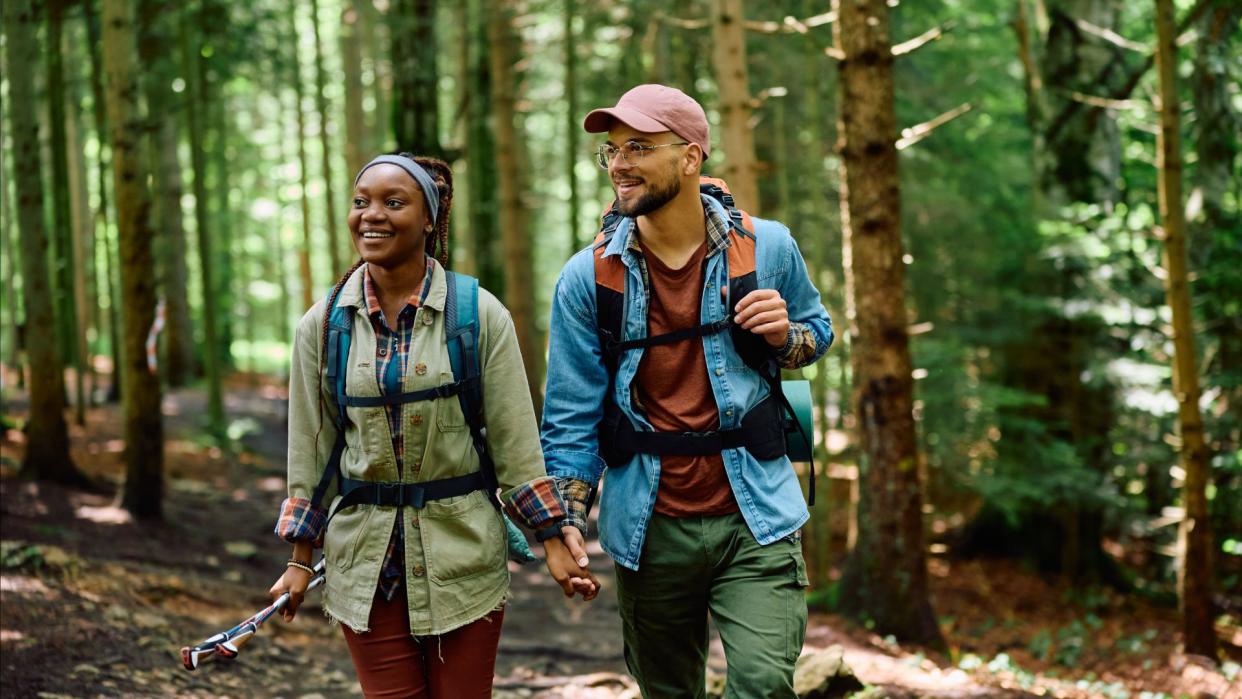
There’s no better way to explore the great outdoors than on foot, with the wind in your hair and the sun shining down on your face. Not to mention, being outdoors is a great way to clear the mind and leave us feeling happier. But, before you head out the door there are a few things you need to do before your hike and one of those is pack some trusty supplies. After all, it wouldn’t be a successful hike without some.
Overpacking is easier said than done when it comes to hiking, but you’re only going to make your backpack heavy, which will lead to an uncomfortable (and more strenuous) hike. And who wants that? You therefore need to prioritise what’s essential and what’s not for your outdoor adventure.
Below, Pitt Grewe, Head of Public Lands Patnership at AllTrails, ranks the best to worst items to bring on your hike with you, so you don’t fall into the overpacking trap. Here’s what’s worth making it into your hiking backpack and what you should leave at home…
1. Water
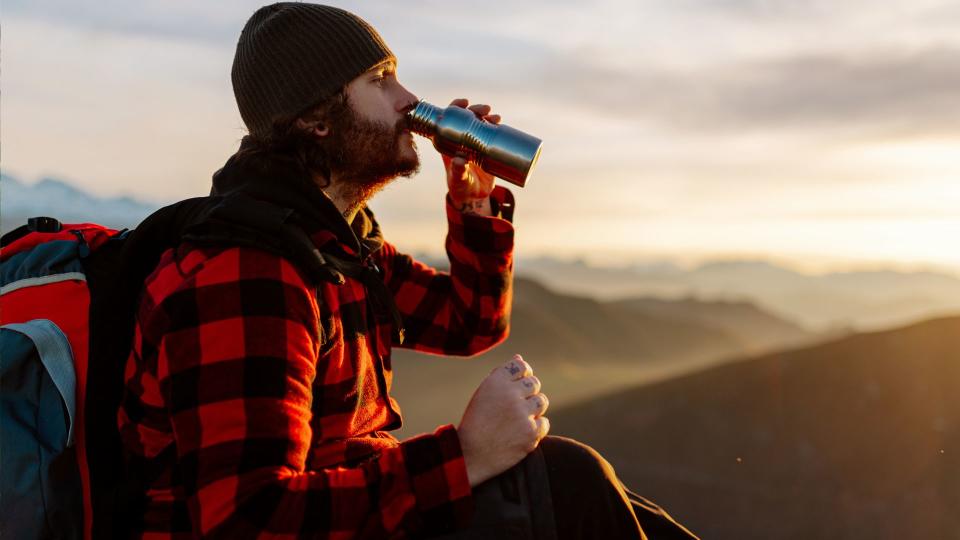
Hiking is thirsty work, so packing your hiking water bottle is a must. “Regardless of length or difficulty, water is absolutely essential for any hike,” says Pitt. “Staying hydrated will help maintain energy levels and prevent dehydration. A good baseline is one-half liter per hour per person.”
2. Layers
Nothing quite spoils a hike like not being prepared for unpredictable weather. “It can change quickly outdoors, so it's wise to be prepared for rain or inclement weather,” says Pitt. “I recommend using a three-layer technique, which consists of a first breathable layer to keep you dry, a second insulating layer to keep you warm, and a third windproof or waterproof layer to protect you from the elements.”
3. Navigation Tools
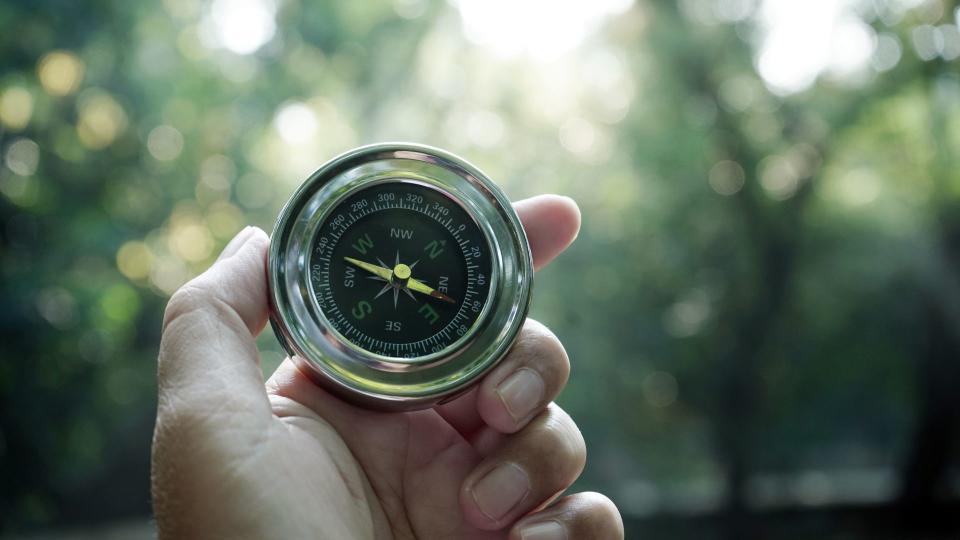
You may think you’ve got an amazing sense of direction, but just incase you get lost you’re going to want some tools to help you find your way home. “Navigation apps with maps and a compass are essential for staying on course and finding your way, especially if you encounter unexpected detours, particularly on longer or more remote hikes,” Pitt says.
4. First Aid Kit
Hopefully, you’ll never need it, but it’s definitely better to have one and be safe, than sorry. “It can help you treat minor injuries or medical issues that may arise during the hike, keeping you prepared for unexpected situations,” says Pitt.
5. Sun protection
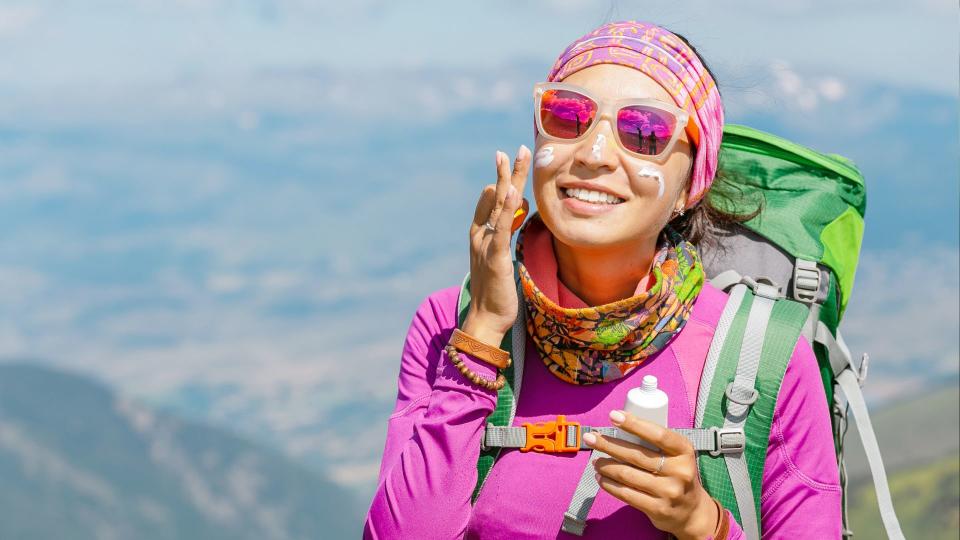
“Protecting yourself from the sun's harmful rays is crucial, especially during long hikes or when hiking at higher elevations,” says Pitt. Make sure you apply a suncream with at least SPF30 and reapply this throughout the day. A hat and sunglasses will also help prevent sunburn, heat exhaustion, and other sun-related issues.
6. Snacks
Keeping your energy levels up, especially during longer hikes, is important and being around someone that's hangry is never a pleasant experience. Pitt suggests packing nutritious snacks like trail mix, energy bars, or fresh fruit to keep you feeling satisfied.
7. Multi-tool or knife
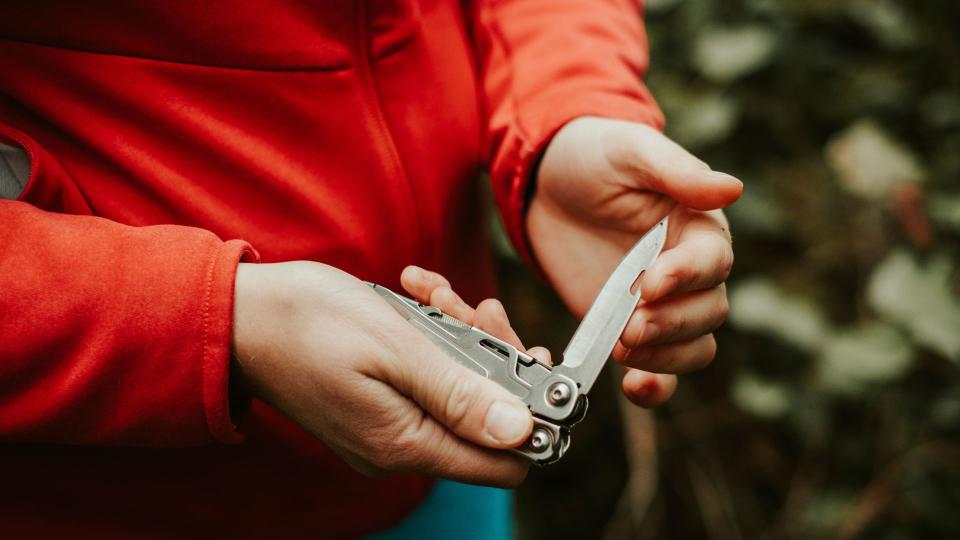
This definitely isn't essential for every hike, but Pitt says a multi-tool or camping knife can be incredibly useful in various situations. "It can be used for tasks like cutting rope, repairing gear, or preparing food, making it a handy tool to have during your hike."
8. Insect repellent
Mosquitoes, ticks, and midges can be a nuisance during hikes, but it will largely come down to your location and time of year as to whether you'll need this. “While insect repellent can help prevent bites and discomfort, it's not necessary for every hike, especially in cooler or less buggy environments,” says Pitt.
9. Portable camp chair
“While comfortable for relaxing at a campsite, a portable camp chair is less essential for shorter day hikes where you may not spend much time sitting,” says Pitt. Not to mention it will add a lot of extra weight to your load. “Leave the camp chair behind if it won't significantly impact your ability to complete the hike safely.”
